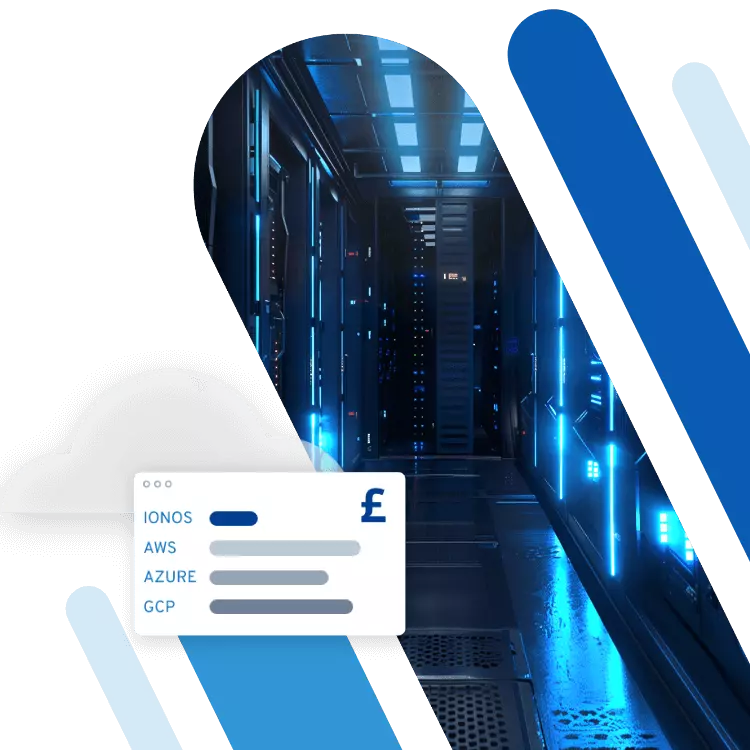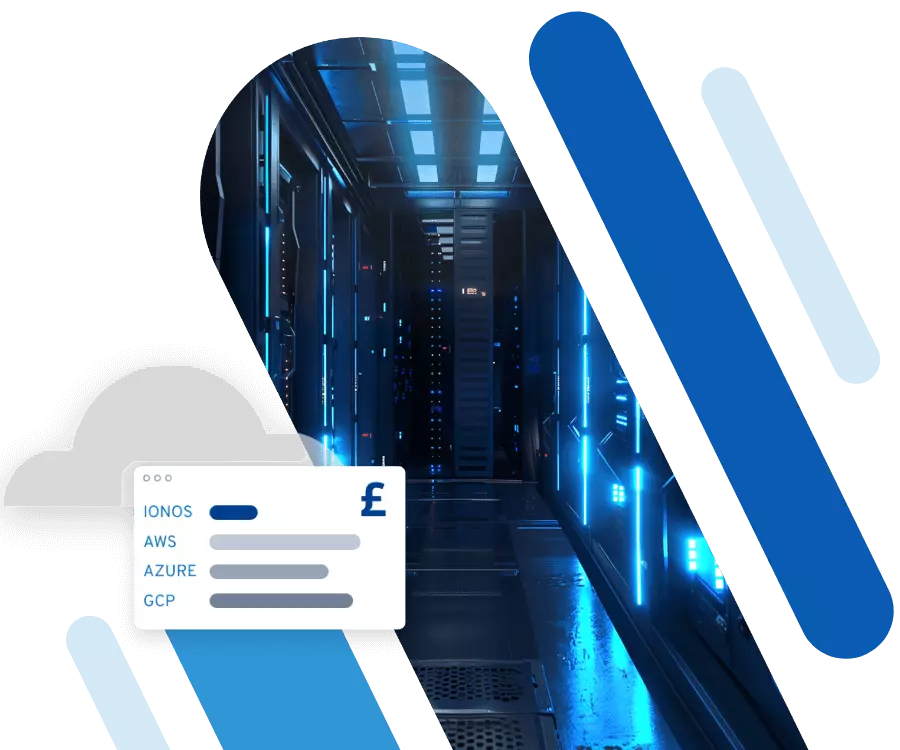What is Debian (Linux OS)?
Debian is a Linux-based OS that was created in 1993. The main goal of the operating system is to be error-free. For this reason, the system focuses primarily on stability and durability. Here, we’ll explain what the Debian Linux OS is and its advantages and disadvantages.
- Unlimited traffic and up to 1 Gbit/s bandwidth
- Fast SSD NVMe storage
- Free Plesk Web Host Edition
What is Debian?
Debian is one of the most popular systems based on the Linux kernel. It is considered to be one of the oldest and most stable Linux distributions. For this reason, Debian is a particularly popular operating system choice for servers. Furthermore, Debian is one of the most influential Linux distributions, which is why many newer distributions are based on it, such as the extremely popular Ubuntu. Like almost all Linux-based operating systems, Debian is open source and free of charge.
What are the advantages of Debian Linux OS?
Debian is one of the most popular Linux-based operating systems for good reason. The main advantages of the distribution include:
- Stability: The biggest advantage of the Debian Linux OS is its stability. Every software package is thoroughly tested before it is made available for download in the official software catalog. The same applies to new versions of the operating system itself. Debian is also very future-proof due to the OS having been reliably maintained and updated at regular intervals for over 30 years.
- Software support: Debian is one of the oldest and most widespread Linux distributions. In addition, Debian serves as the software foundation for Ubuntu, by far the most popular Linux operating system. Therefore, it is hardly surprising that the Debian software catalog offers more packages than any other.
- Hardware support: In addition to excellent software support, Debian also offers excellent hardware support, especially for various CPU architectures. In addition to x86 and ARM, Debian can also run on the MIPS and PowerPC architectures, which are not as well known.
- Good help and support: The extensive and diverse Debian community is ready to help users with issues and largely replaces the paid support offered by other systems. However, help is rarely necessary, especially when it comes to installation. Despite the complexity of the distribution, the installation process is intuitive and quick.
- Open source: If you are a developer yourself, you can also work on your own solution as almost all components are open source.
Debian and Ubuntu are similar in many respects but have been fundamentally designed for different target groups. You can find a detailed comparison of Debian and Ubuntu in a separate article in our Digital Guide.
What are the disadvantages of Debian Linux OS?
As with any other system software, there are some minor drawbacks as well. When it comes to Debian, the disadvantages of using the operating system are:
- Lack of modernity: The Debian Linux OS is considered one of the most stable Linux distributions, but this stability comes at a price, with Debian being a fairly conservative OS in terms of updates. Due to the long and extensive testing of each software package and each release of the operating system, some newer features and apps are not yet supported. Therefore, Debian often feels less modern than other open-source or proprietary operating systems.
- Difficult to get started: When using Debian, it’s quite clear that the focus of the operating system is more on its robustness than on user-friendliness. For example, setting up the system and running it is much more complex than with Ubuntu or Linux Mint.
- Lack of support for proprietary applications: Many proprietary programs such as the Microsoft Office applications Word, Outlook or Sharepoint are not available for GNU/Linux distributions. For this reason, you often have to resort to alternatives such as LibreOffice or Alfresco.
How secure is Debian?
The cooperative work of numerous community developers also pays off when it comes to security. If security vulnerabilities are discovered, it usually only takes a couple of days before new, corrected packages are uploaded. But security gaps like these are usually a rarity because the vast majority are discovered in the testing and development phase and fixed before the release of a new stable version. The intensive test phase also gives Debian a high level of stability, meaning that it almost never crashes.
Those responsible for the Debian project also attribute great importance to encryption. By using packages of the open-source security software GnuPG, as well as the proprietary pendants PGP, email content can be protected and then combined with an SSL/TLS certificate. This provides optimal protection for sending and receiving emails. SSH (Secure Shell) can also be used to establish authenticated and encrypted connections to other machines, which can also communicate via the network protocol.
Is Debian the right Linux OS for you?
To reduce Debian to a specific application area wouldn’t do the system justice. The Debian distribution is a true all-rounder since it supports various hardware architectures, has tens of thousands of applications ready for installation, and is an extremely secure and stable system. But due to the complexity of the system, and the fact that some software isn’t always up to date, certain alternatives like the derivative Ubuntu represent a better choice for home computers, especially for newcomers to Linux. The real strength of Debian lies in its use as a server system. The stable version, which includes long-term support, is ideally suited to any project that needs a reliable and practically error-free system as its foundation.
What changes were made to the Linux-based OS in Debian 12?
Debian 12 has been available for download since June 2023. Debian 12 is an LTS release (Long-Term Support) of the operating system. This means that this release will receive security updates for five years. In addition, there are many other updates that Debian 12 users should be aware of. The most important updates are summarised below:
- Linux kernel update to version 6.1: The new Debian version is equipped with the LTS Linux kernel 6.1. Among other things, the new kernel supports Rust as the official kernel programming language. It also ensures greater hardware compatibility (including newer Intel and AMD CPUs) and various file system optimisations.
- Package manager optimisations: The apt package manager now has a new archive for proprietary firmware, as well as some optimisations.
- Software updates: Most Debian software packages have been updated to a newer version.
- Improved hardware and software support: Debian now has better support for Apple Silicon, Apple File System and some CPU architectures, including ARM64.
Unsure which version of Debian is installed on your system? We’ll show you how to check your Debian version.

